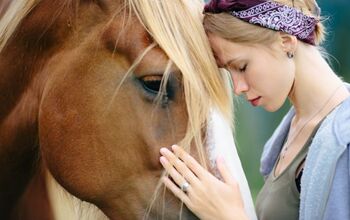Things to Consider Before Getting a Pet Degu
If you’ve ever wanted a pet that’s as curious as a squirrel but as social as a guinea pig, you might want to meet the degu.
These small rodents from Chile aren’t as common as hamsters or rabbits, but for the right person they make engaging, lively companions.
Before you dive in, though, there are a few important things to know.
Disclosure: PetGuide may receive a small affiliate commission from purchases made via links in this article but at no cost to you.
What Exactly Is a Degu?
Degus are small, highly social rodents, usually about the size of a large gerbil. In the wild they live in groups, dig elaborate burrow systems, and spend much of their time foraging.
In captivity, they’re known for being active, intelligent, and vocal. Unlike many rodents, they’re diurnal (awake during the day), which makes them easier to interact with if you’re on a typical human schedule. With proper care, degus can live 5–8 years.
Is It Legal to Keep Degus?
Laws around degu ownership vary depending on where you live. In some U.S. states (like California and Alaska), they’re restricted or banned because they’re considered potential invasive species. Other countries may also have import restrictions, so always check local regulations carefully.
If degus are legal in your area, make sure to adopt from a reputable breeder or rescue rather than from unverified online sources.
Housing and Environment
- Cage size: Degus are energetic climbers and runners, so they need a spacious, multi-level cage.
- Substrate: Paper-based bedding or aspen shavings work well. Avoid pine or cedar, as they can cause respiratory issues.
- Enrichment: They need chew toys (to keep their teeth in check), tunnels, shelves, and a solid-surface exercise wheel (not wire, which can injure their feet).
- Temperature: Keep them in a cool room (18–24°C). Degus are prone to overheating, so avoid direct sunlight or stuffy rooms.
What Do They Eat?
Degus have specific dietary needs, especially because they’re prone to diabetes. Here’s a general breakdown:
- Base diet: High-quality degu pellets or chinchilla pellets (without added sugar).
- Hay: Unlimited access to fresh hay (timothy, meadow, or orchard grass) for digestion and dental health.
- Water: Constant access to a fresh supply.
- Vegetables: Leafy greens and herbs (like dandelion, kale, or parsley) can be offered daily.
- Avoid: Anything high in sugar—fruits, sweetcorn, and sugary treats can cause serious health issues.
Social Needs
Degus are not solitary pets. They thrive in pairs or small groups and can become stressed, depressed, or even aggressive if kept alone. If you’re considering them, plan for at least two.
They bond strongly with their cage mates and, with regular gentle handling, can also build trust with their humans.
Handling and Interaction
Degus are fast, agile, and curious. While they can become tame with patience, they’re not always the best “cuddle” pets. They often prefer climbing on you or exploring nearby, rather than sitting still in your hands.
It’s important to note you should never pick up a degu by the tail. Their tails are fragile and can “slip” as a defense mechanism, leaving permanent injury. Always scoop them gently with both hands.
Cleaning and Care
- Daily: Remove uneaten fresh food and check water bottles.
- Weekly: Spot-clean bedding and wipe down surfaces.
- Monthly: Do a thorough cage clean.
Like chinchillas, degus benefit from dust baths a few times per week to keep their fur clean and healthy.
Niteangel Aspen Shaving for Small Pets
Health Considerations
Signs of a healthy degu include bright eyes, smooth fur, steady activity, and constant chewing/foraging behavior.
Watch out for signs of dental issues (drooling, weight loss), diabetes (lethargy, cataracts), or aggression.
They’re not ideal pets for very young children, since they require careful handling and a lot of daily interaction.
The Bottom Line
Keeping degus is a bigger commitment than most people expect. They need plenty of space, companionship, and regular attention—but for those willing to meet their needs, they’re one of the most rewarding small pets around.
Join the PetGuide community. Get the latest pet news and product recommendations by subscribing to our newsletter here.
More by Rachel M.



























